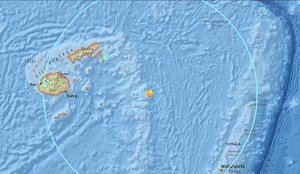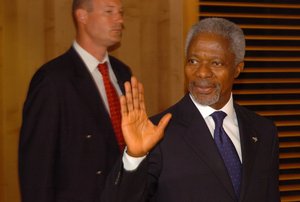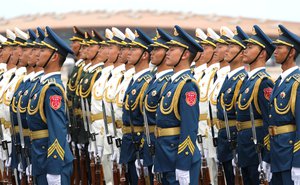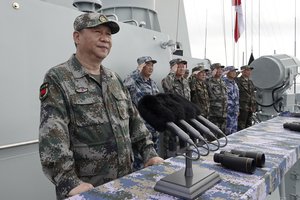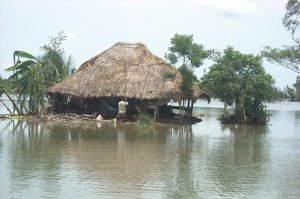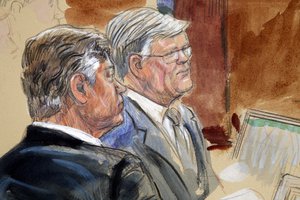Please tell us which country and city you'd like to see the weather in.

Nigeria
The Federal Republic of Nigeria, commonly referred to as Nigeria ![]() i/naɪˈdʒɪəriə/, is a federal constitutional republic in West Africa, bordering Benin in the west, Chad and Cameroon in the east, and Niger in the north. Its coast in the south lies on the Gulf of Guinea in the Atlantic Ocean. It comprises 36 states and the Federal Capital Territory, where the capital, Abuja is located. Nigeria is officially a democratic secular country.
i/naɪˈdʒɪəriə/, is a federal constitutional republic in West Africa, bordering Benin in the west, Chad and Cameroon in the east, and Niger in the north. Its coast in the south lies on the Gulf of Guinea in the Atlantic Ocean. It comprises 36 states and the Federal Capital Territory, where the capital, Abuja is located. Nigeria is officially a democratic secular country.
Modern-day Nigeria has been the site of numerous kingdoms and tribal states over the millennia. The modern state originated from British colonial rule beginning in the 19th century, and the merging of the Southern Nigeria Protectorate and Northern Nigeria Protectorate in 1914. The British set up administrative and legal structures whilst practising indirect rule through traditional chiefdoms. Nigeria became a formally independent federation in 1960, and plunged into a civil war from 1967 to 1970. It has since alternated between democratically-elected civilian governments and military dictatorships, until it achieved a stable democracy in 1999, with its 2011 presidential elections being viewed as the first to be conducted reasonably freely and fairly.

Nigeria (album)
Nigeria is an album by American jazz guitarist Grant Green featuring performances recorded in 1962 but not released on the Blue Note label until 1980. The tracks were also released in 1997 as part of The Complete Quartets with Sonny Clark.
Reception
The Allmusic review by Michael Erlewine awarded the album 4½ stars and stated "Just classic Green".
Track listing
Personnel
References
Nigeria (disambiguation)
Nigeria is a country in West Africa.
Nigeria or Nigerian may also refer to:
See also
Radio Stations - Abuja
SEARCH FOR RADIOS
'Nigeria' is featured as a movie character in the following productions:
A Hero Ain't Nothin' But a Sandwich (1978)
Actors: Cicely Tyson (actress), Bill Cobbs (actor), Glynn Turman (actor), Paul Winfield (actor), Arthur French (actor), Harold Sylvester (actor), David Groh (actor), Larry B. Scott (actor), Ralph Nelson (director), Kevin Hooks (actor), Helen Martin (actress), Fred A. Chulack (editor), Arnold Johnson (actor), Sheila Wills (actress), Claire Brennen (actress),
Plot: Benjie is a troubled teen in Los Angeles, living with his grandmother, mother, and her new boyfriend. Traumatized by his father's desertion and the situation at home, Benjie gets introduced to heroin. The downward spiral begins. At school he faces conflict between the two teachers he respects: Nigeria who emphasizes African history and is hostile to white teachers like Mr. Cohen, who pursues racial harmony. Benjie's family must come to terms with the devastation he has created in his life and make changes which affect them all.
Keywords: african-american, apostrophe-in-title, based-on-novel, blaxploitation, drug-addiction, drugs, heroin, independent-film, marijuana, mother-son-relationshipGenres: Drama,
Headstrong
Slowly the center of the universe shifts
No longer is he the birth of my shame
Now I see the end to this
Now I’m free to end all this
He don’t call me
and I surrender
He won’t see me
but I am headstrong
and I could be a little better
and I could be a little bit stronger
and I could be a little bit of everything
He was the stone on the ground I stepped upon
He meant to have me as I was for way too long
Now I see how I grew up
Now I’m here and he’s torn out
He won’t call me, and I surrender
He won’t see me
but I am headstrong
and I could be a little better
and I could be a little bit stronger

Nigeria
The Federal Republic of Nigeria, commonly referred to as Nigeria ![]() i/naɪˈdʒɪəriə/, is a federal constitutional republic in West Africa, bordering Benin in the west, Chad and Cameroon in the east, and Niger in the north. Its coast in the south lies on the Gulf of Guinea in the Atlantic Ocean. It comprises 36 states and the Federal Capital Territory, where the capital, Abuja is located. Nigeria is officially a democratic secular country.
i/naɪˈdʒɪəriə/, is a federal constitutional republic in West Africa, bordering Benin in the west, Chad and Cameroon in the east, and Niger in the north. Its coast in the south lies on the Gulf of Guinea in the Atlantic Ocean. It comprises 36 states and the Federal Capital Territory, where the capital, Abuja is located. Nigeria is officially a democratic secular country.
Modern-day Nigeria has been the site of numerous kingdoms and tribal states over the millennia. The modern state originated from British colonial rule beginning in the 19th century, and the merging of the Southern Nigeria Protectorate and Northern Nigeria Protectorate in 1914. The British set up administrative and legal structures whilst practising indirect rule through traditional chiefdoms. Nigeria became a formally independent federation in 1960, and plunged into a civil war from 1967 to 1970. It has since alternated between democratically-elected civilian governments and military dictatorships, until it achieved a stable democracy in 1999, with its 2011 presidential elections being viewed as the first to be conducted reasonably freely and fairly.
Latest News for: nigeria
1 dead, 6 injured after building collapse in Nigeria capital
 Tucson
19 Aug 2018
Tucson
19 Aug 2018
Nigeria's favourite leader won't become president - yet
Why Nigeria must address regional inequality
NFF Crisis: Nigeria face imminent FIFA ban
The Good, The Bad, The Ugly of Nigeria’s Debt
FG Threatens Sponsors, Sympathisers of Boko Haram Insurgency
Another Retired Supreme Court Justice is Dead
Confusion as Landslide Rocks Anambra Community
Tinubu Bows to Pressure, Set to Endorse Ambode for Second Term
Fayose Berates APC for Attacking Recruitment Exercise
Wamakko: PVC Only Weapon to Vote Credible Candidates
Shekau’s Attacks Make Life Difficult for Muslims, Says Boko Haram Faction
- 1
- 2
- 3
- 4
- 5
- Next page »
News Search
Most Viewed
This is Money | 19 Aug 2018
Penn Live | 19 Aug 2018
WorldNews.com | 17 Aug 2018
WorldNews.com | 17 Aug 2018
WorldNews.com | 17 Aug 2018






















